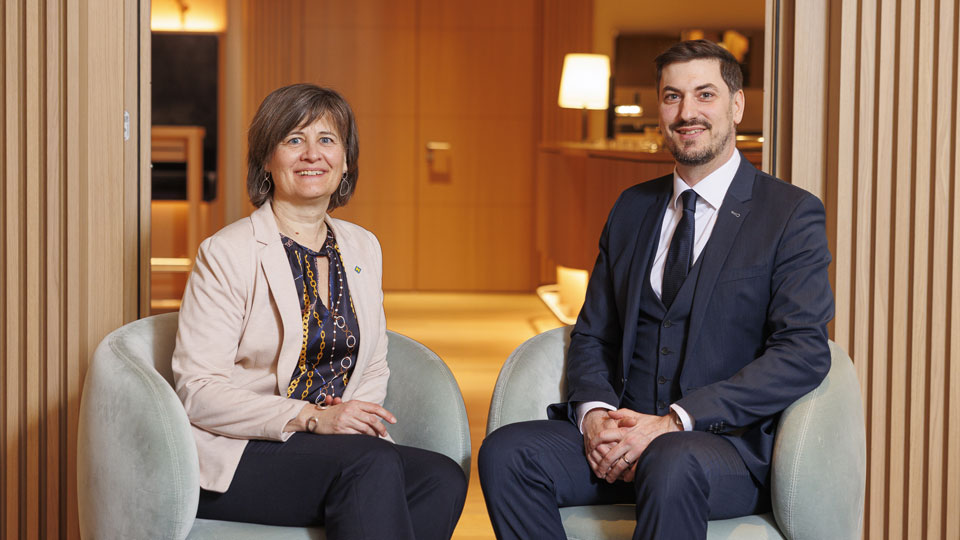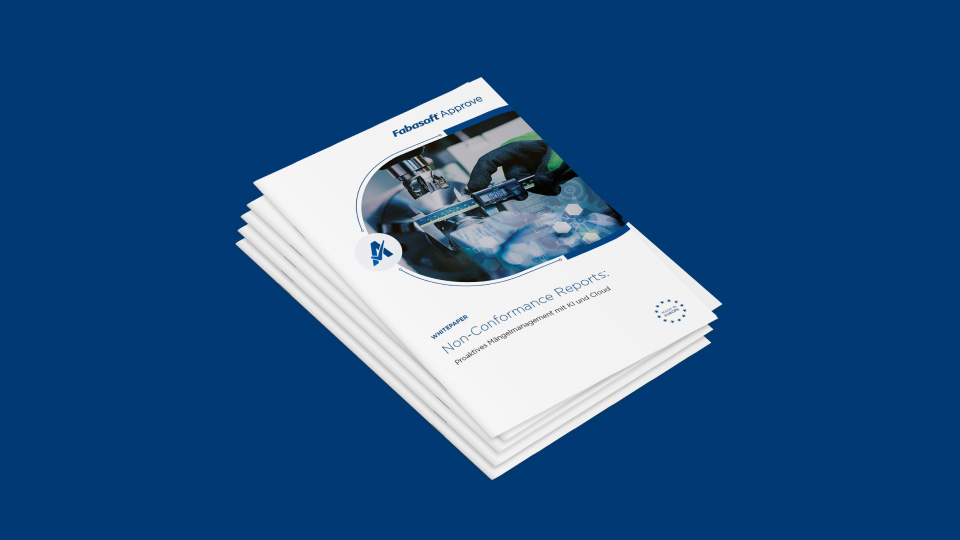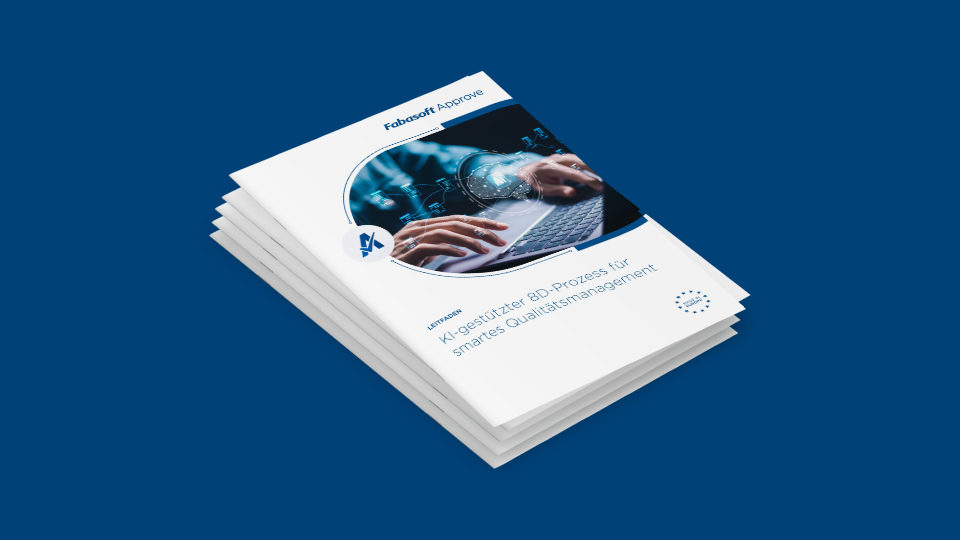What particular challenges are you currently facing in public administration - especially in times of increased expectations due to digitalization?
Petra Stummer: Public administration, especially regional administration, has very complex tasks in areas such as education, business, the environment, agriculture and forestry, right through to legislation. Many different professional groups work in these fields, which means that we are feeling the effects of the impending wave of retirements. Finding qualified personnel on the labour market is a similar problem for the administration as it is for companies and other organizations. At the same time, as a modern administration, we are interested in making services and benefits easily accessible for citizens and companies, making them available around the clock and enabling them without media disruptions. As an IT service provider, we are therefore caught between offering a wide range of digital services to the outside world and supporting processes within the administration at the same time.
In which areas is the digital transformation proving to be particularly helpful for the current problems?
Bastian Drugowitsch: There is already a very well digitized structure in the area of public administration. This means that the electronic file has been rolled out and established, processes have been digitally mapped and workflows have been established. This is the result of years of effort and professional cooperation between all those involved. Thanks to this groundwork, we can now provide particularly good support with additional services in the course of the digital transformation. As a result of the wave of retirements and increasing requirements, we are focusing in the next step on those areas in which authorities can quickly create benefits: On the one hand, this is interaction with citizens and companies. Another topic is the use of intelligent automation to speed up processes, further improve service quality and counteract a demographically induced loss of expertise. This gives us the opportunity to offer targeted support across the administration wherever it is needed.
How do you intend to master these challenges in Lower Austria? What measures are you taking?
Petra Stummer: We have to meet the challenges at various levels: On the one hand, this includes positioning the state administration as an interesting, diverse employer, qualifying staff through ongoing training and apprenticeships in the various professions. On the other hand, the focus is on digital transformation: Digital processes within the administration have already been in place for years thanks to the electronic file in all departments of the Federal Government of Lower Austria. Online applications and the experience gained in the automation of funding processing in the specialist applications have led to a massive increase in efficiency. Especially for professional groups who work a lot in the field at companies or in the open field, the equipment with mobile devices and access to all central services such as the electronic file and maps, including GPS use, enables efficient and seamless work. For easy communication with external parties (citizens, companies and other regional authorities), a Lower Austrian online service portal is currently being created, implemented with the low-code/no-code online services from Fabasoft. This platform enables interaction and collaboration on a digital channel with the Federal Government of Lower Austria through forms, shared document storage with options for viewing files and transparent information on the processing status.
What can citizens expect from the service portal?
Bastian Drugowitsch: All of the online services offered by the authority are available on the platform – for example, for a wide range of funding. Applicants simply fill these out directly online, add the necessary enclosures and send them to the authority. In addition, applicants can view status information and always know which applications are currently being processed or whether further information is required. On the administration side, the responsible processors automatically receive the submitted applications and information via existing processes directly into the electronic file without media discontinuity. This creates an end-to-end digital process from the citizen to the authority and back again. This forms the basis for quality, efficiency, intelligent automation and an immense reduction in the workload of employees, which benefits everyone involved.
The Federal Government of Lower Austria launched the implementation of the online service portal with a kick-off event at the beginning of the year. What are the next steps?
Petra Stummer: The online service portal is currently under construction and we expect the so-called Teamroom, the core of the platform where citizens and companies can exchange information with the authority on ongoing procedures, to be implemented by the middle of this year. The subsequent testing of simple forms and online services should take place in the third quarter. The testing of authentication, including an initial procedure, will take place in the Lower Austrian provincial administration's Plant Law Department in the first quarter of 2025. Based on this experience and the reusable components, we want to go into series production and integrate further procedures into the service portal.

Fabasoft is significantly involved in the introduction of the Lower Austrian service portal. How does the cooperation work?
Bastian Drugowitsch: Thanks to the many years of cooperation with the Office of the Lower Austrian Provincial Government and our project participants, who are actively involved in the realization of the service portal, the collaboration is very professional, goal-oriented and smooth. Regular meetings enable an important exchange of information from which both sides benefit and from which the optimal use of products and potentials can be derived. I am confident that we will soon be able to create real added value for employees in the Lower Austrian state government and also for citizens and companies.
Why is it necessary to offer online services? What are the motives in the Federal Government of Lower Austria? What goals do you want to achieve with this project?
Petra Stummer: We were looking for technical solutions to create digital services for citizens and companies without the need for costly development and maintenance by IT specialists. The technology of the no-code/low-code platform is ideal for this. As part of a proof of concept with our long-standing partner Fabasoft, we discovered that the integration offered here into the existing eGov-Suite of the electronic act has many advantages. This means that we can continue to use the previous investments in the system and retain the extensive know-how of our employees. The online service portal, which is available 24/7, offers the opportunity to redesign communication with the state administration in a new and interactive way and to speed up processes.
Low-code/no-code also enables administrative staff without IT expertise to develop new application procedures. How does this work?
Bastian Drugowitsch: No programming knowledge is required to create new procedures with low-code/no-code, as forms do not have to be developed from scratch, but rather a kind of modular system is available that can be used again and again. The fields required for a new form are therefore already available and can be easily combined. Employees independently determine what is mandatory for applicants to complete, which enclosures are required and at the same time define the process within the authorities. This is particularly suitable for employees who understand the procedures and associated processes well, but do not need to have more than a certain technical affinity for IT. Low-code/no-code is therefore a contemporary response to the current challenge and can increase the flexibility of application provision and significantly accelerate time-to-market. As a public authority, this makes it possible to react to new developments and requirements autonomously, quickly and in a resource-saving manner.
What requirements are needed to implement this important topic, the provision of online services, in an efficient and beneficial way?
Petra Stummer: The success of innovative projects in public administration depends on various factors, just like in companies. These include mature technologies that enable rapid implementation thanks to the reusability of components. It also requires a competent project team and a professional partner who understands the requirements, in this case those of the administration.
In addition to online services, what other potential do you see to meet the challenges mentioned at the beginning?
Petra Stummer: Of course, we are also looking into the use of other new technologies such as drones to reduce the time and effort required for inspections, or the possibilities of automation and artificial intelligence to support employees with repetitive tasks. Initial trials are underway, and we are doing the same as with online services: We are evaluating the function and benefits with specific use cases as part of a proof of concept.
How does Fabasoft support public administration in driving forward the digital transformation in the future?
Bastian Drugowitsch: We are constantly developing and implementing innovative products for our customers. The logical next step in counteracting the shortage of skilled workers and demographic change is to support employees with intelligent automation. With Fabasoft Done! we have a solution for our customers that significantly increases the quality and speed of process handling. This not only reduces the workload of employees, but also transfers the knowledge of experts into a set of rules within the system. As a result, many steps in the processes are fully or partially automated. The aim is to enable employees to focus their work away from repetitive tasks and onto other essential tasks. Other areas include the use of artificial intelligence in the context of specific and effective use cases and the consistent further development of our ecosystem to create ideal synergies between our solutions. The focus is always on the needs of the administration to ensure rapid and targeted benefits.
Mag. Petra Stummer is Head of the IT Department at the Office of the Federal Government of Lower Austria.
Mag. Bastian Drugowitsch, Bsc is Managing Director of Fabasoft Austria GmbH.




